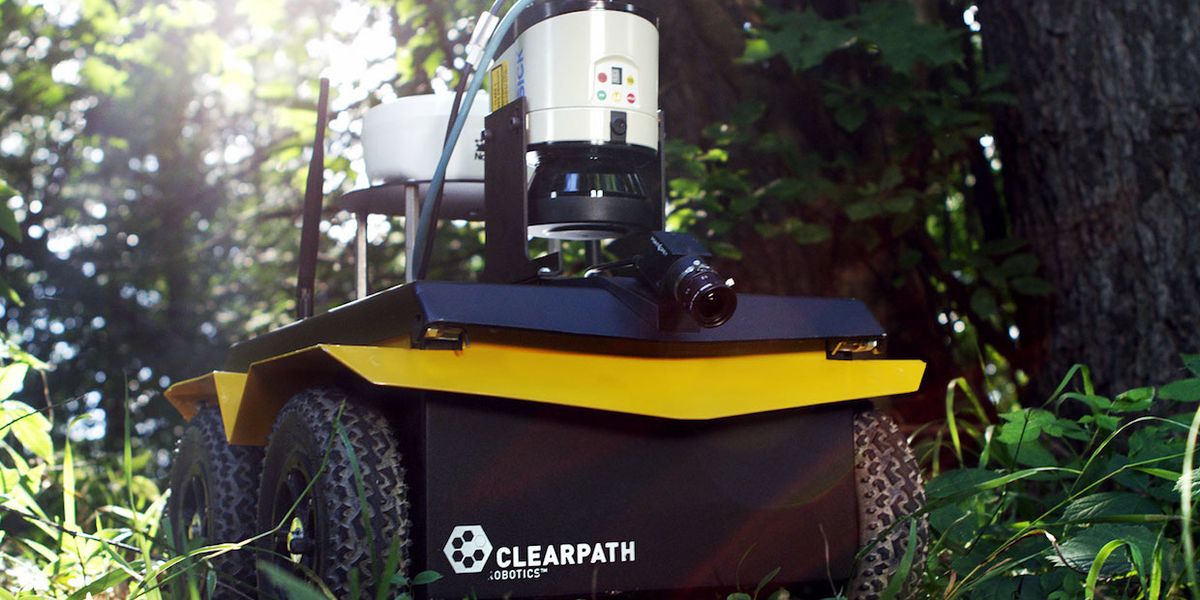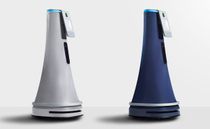Cobalt

Cobalt is an indoor security guard robot that can recognize faces, check badges, and use an array of sensors to identify potential security or environmental threats. It navigates both autonomously and under supervision of a human operator.
- Creator
- Year
- 2017
- Country
- United States 🇺🇸
- Categories
- Features
Did you know?
Swiss designer Yves Béhar dreamed up Cobalt's look to align with office décor instead of the typical metallic appearance of robots.

History
Cobalt Robotics, a startup based in Palo Alto, Calif., was founded by Erik Schluntz, a former engineer at SpaceX, and Travis Deyle, a former roboticist at the Georgia Tech's Healthcare Robotics Lab and Google X. In 2017, Cobalt announced an autonomous mobile robot designed for indoor security applications that can "work alongside human guards to provide better security than people can do alone." Cobalt's robot is able to navigate around premapped areas in buildings, recognize people and read badges, and features a wide range of sensors, including day-night cameras, lidar, microphone array, RFID, and smoke and CO2 detectors.

Specs
- Overview
Autonomous operation. Two-way video and audio communication. Intruder detection and deterrence. Remote human operators. Emergency response. Badge reader integration. Over-the-air updates. Wi-Fi mapping. Environmental sensing. Anomaly detection and asset tracking.
- Status
Ongoing
- Year
2017
- Website
- Width
- 53.3 cm
- Height
- 154.9 cm
- Length
- 53.3 cm
- Weight
- 68 kg
- Speed
- 3.2 km/h (average), 9.7 km/h (max, for emergencies)
- Sensors
3D scanner for obstacle avoidance and navigation. Secondary 3D scanner, pointing down, to detect small obstacles and cliffs. Four-camera array, with infrared cameras. Navigation sensor with long range (20 meters) and wide field of view (270°). Environmental sensors (smoke, carbon monoxide, humidity, temperature, and dust in the air), thermal, ultrasonic, and bump sensors. Two long-range RFID sensors to track assets and high value items. Microphone array. Badge scanner for mobile access control and employee authentication.
- Actuators
Hub motors in wheels
- Degrees of Freedom (DoF)
- 2
- Materials
Body of the robot is covered in fabric, which is detachable and water-resistant and hides speakers, cameras, and an environmental sensor bay. Top part of the robot is metal housing for compute and sensing modules.
- Compute
High-end server-grade computer with NVIDIA 1080-class GPU. Secondary compute resources to manage networking and safety-critical systems.
- Software
ROS, Python control, API calls over HTTP
- Power
Lithium-iron-phosphate battery, 8 hours of operation; 2 hours to charge from empty. Automatically tops off charge every hour to ensure battery charge while on duty.
- Cost
- $75,000 per year for security service, including robot, specialists, and set up.







